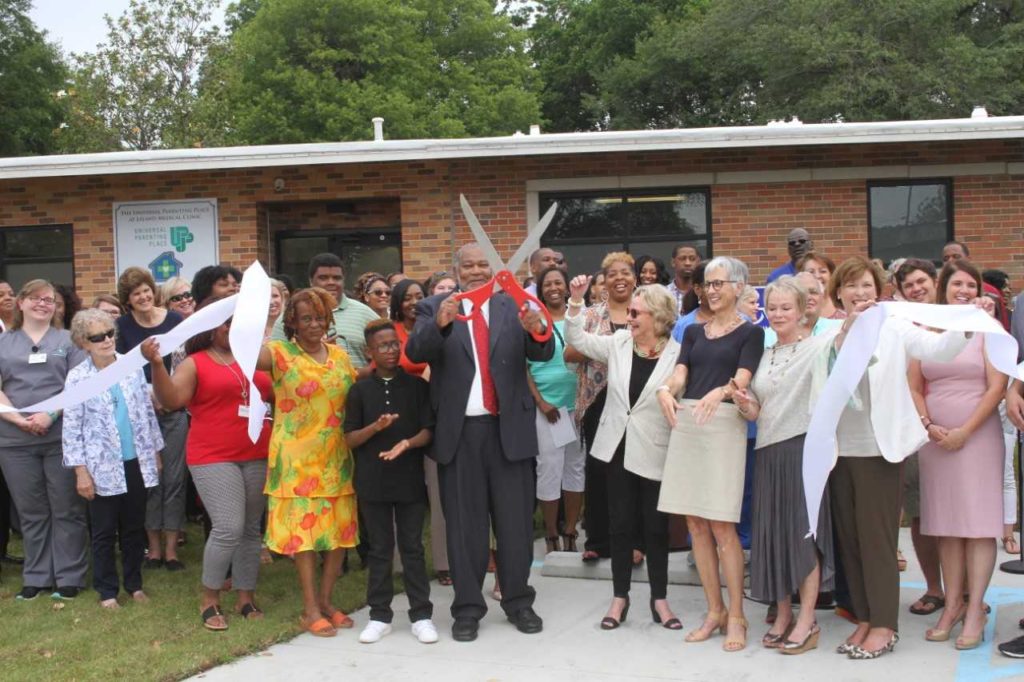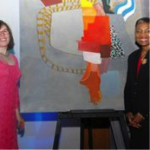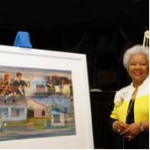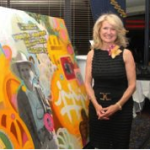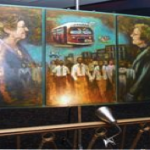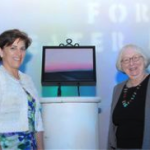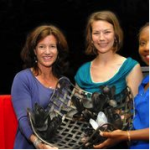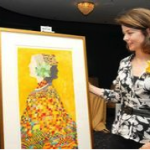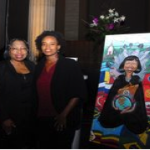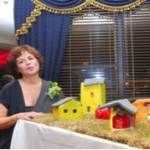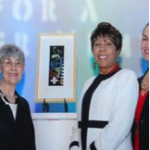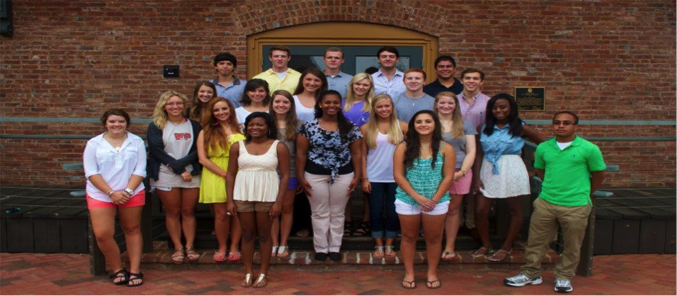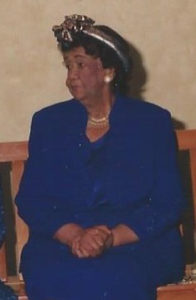Ellen Rolfes is an entrepreneur. In fact, alluding to herself in remarks to a large banquet crowd, she once gave this unique definition of such a person –
“Entrepereneurs respect the system, but for some indefinable reason they are internally driver to follow a vision beyond the one recognized by the system. They just see things differently. They are those kids in kindergarten who colored outside the lines, and thank goodness they did. The world is a better place because they had the imagination and courage to use those crayons to draw a different picture for everyone to see.”
She has colored outside the lines. Through it all she uses her gift of “right brain thinking” to help institutions and individuals develop sustainable models that attract financial growth and lasting societal change. For over twenty five years, her key constituencies have included academic and healthcare institutions, nonprofits in social service and the arts, philanthropically-oriented corporations and individuals who have a sense of social responsibility. Here are examples of her work.

As a social architect, Ellen Rolfes ultimately formed her company in order to consult with organizations to strengthen their philanthropy plan as it relates to culture and community. By identifying potential partners and donors who have not particularly worked together, she helps galvanize them around a new vision. She guides participants to go deep into their own societal narrative arches to find connections and patterns that were not obvious thus have inhibited their organization’s sustainability model. Through it all, Ellen often sees past mired confusion and old paradigms to find a future that others cannot yet see.
- Guiding institutions and groups by unlocking the stories within to create their own bold vision for the future
- Evoking stronger financial sustainability for societal change built on expanding community engagement and support
ACE Awareness Foundation
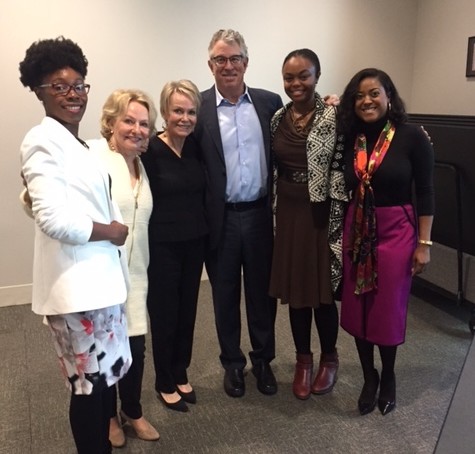
ACE Awareness Foundation team with Bruce Perry, MD, Ph.D., nationally recognized trauma expert who was keynote for the ACE Awareness Summit 2016
Ellen Rolfes is the former Executive Director of the ACE Awareness Foundation in Memphis, TN. The foundation’s mission is to educate the Greater Memphis area about adverse childhood experiences (ACEs), support families in their efforts to prevent ACEs and change local and state systems to support ACE prevention efforts. Check out this link for more background on the foundation’s history as part of this national social movement.
To learn more about the ACE Awareness Foundation, visit www.aceawareness.org
Universal Parenting Place (UPP)
In partnership Knowledge Quest and Baptist Memorial Women’s Hospital housed a pilot program, UPP, which is a communication center designed to facilitate open dialogue to prepare parents for all stages of behavioral and emotional challenges with their children. The first-of-a-kind program is based on the national work of Robin Karr-Morse and the results of a 40 year old survey done by Kaiser Permanente in CA and Center for Disease Control that reveal the impact of adverse childhood experiences.
Social determinants of health are as real as the medical determinants. Such experiences as abuse, violence, death, detached parents cause toxic stress that can impair a child’s brain development and can later cause serious adult problems, such as:
-Physical – diabetes, heart disease, obesity
-Mental – PTSD, depression, suicide
-Behavioral – addiction, violence
Since our world is in unprecedented rapid change causing toxic stress in families, the cornerstone of every community is greatly compromised. This reality is forcing a rippling effect by putting the same stress on institutions designed to support them – police, schools, social service agencies, etc. The root symptoms such as financial problems, school dropout rates, domestic violence, juvenile and adult crimes, etc. are evident. These UPP centers will help families in all versions and configurations address stresses that are toxic to their child and family unit as well as the community.
The goal of the UPP sites is to create a trauma informed community, so that we can –
-understand the root causes and is educated to recognize the symptoms.
-be proactive by addressing the concerns before they become serious problems.
-strengthen families at the beginning of these signs rather than putting resources into traditional back-end, Band-Aid approaches.
Ultimately the goal is to have UPP parenting centers dotted all over the county offering free early intervention that is preventive and individually tailored by meeting parents wherever they are on their journey. UPPs are poised to be instrumental in facilitating a paradigm shift that will be an entrepreneurial, national model of community wellness.
To learn more about UPP and meet the 40 member ACE Task Force of community leaders, visit www.theupps.org.
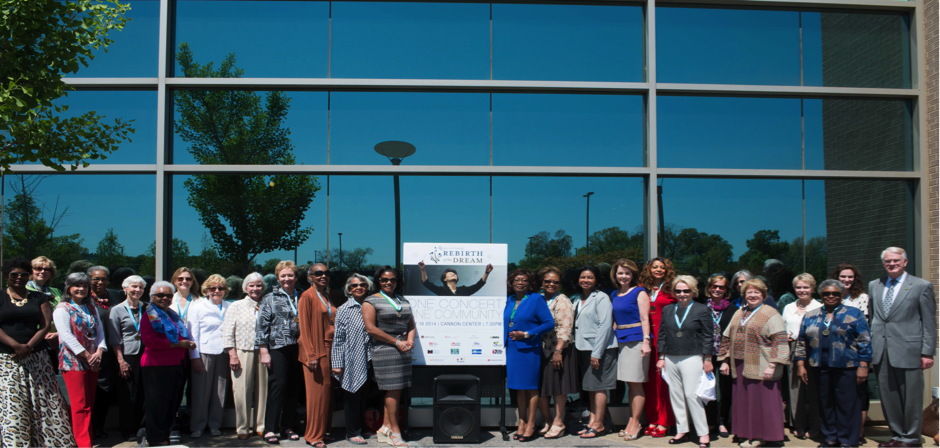
Mei-Ann’s Circle of Friends’ press conference at the Memphis Public Library & Information Center announcing their gift to the community – a free concert for all people called Rebirth of the Dream.
Memphis Symphony Orchestra
Need: The organization was surviving in a deficit structure based on a national model. Over the years the leadership relied on the endowment, but the “pool” depleted. Not only was MSO becoming unsustainable, it needed to be more relevant to the wider community.
Results: Ellen recognized three focus areas for her work: diversify the audience to better reflect the community both in age and ethnicity; build a new patron base from corporations, foundations and individuals; and create an initiative aligned with the orchestra’s rebranding.
Opus One
Ellen started the Charter Friends of Opus One with a young MSO board member to support a concert series created and led by the musicians. Opus One offered un-conducted performances in alternative venues to topple the barrier between classical musicians and the audience. The Charter Friends were 120 young urbanites who invited their friends. The results were diverse audiences mingling with hip “baby boomers” at electrifying performances of classic and mixed-genre music (Al Kapone, Harlan T. Bobo, Amy LeVere, Lucero, Marcella Pinilla, Big Star) in a party-like setting that forged new artistic energy, relationships and public awareness for the MSO talent diversity and emerging commitment to be engaged in the community.
Mei-Ann’s Circle of Friends (MACF)
When Ellen met the new Music Director, Mei-Ann Chen, she saw the patterns and possibilities and soon started MACF, a women’s philanthropy circle of diverse community investors. Members give $1,000 annually and soon grew to 190 (40% minority) with its mission to be an instrument of inclusion through the MSO. Since the inception, MACF has brought in over $750,000 to the operations budget, as well as first time subscribers and patrons who had never been to a classical concert.
In 2018 the MSO board voted to rename the initiative to become ELLEN’S CIRCLE OF FRIENDS to recognize her leadership in institutionalizing inclusion as a core value of the organization.
Rebirth of the Dream
Ellen recognized the need for an emotional cause to keep MACF engaged. She and another Circle member convinced Maestra Chen to have MACF sponsor an original commission that would evoke a new narrative for the community. The women rallied around the project and Ellen raised the (240K) sponsorship money. In a national competition, over280 composer candidates submitted to write the commission that tells the story of how the assassination of Dr. Martin Luther King, Jr. cast a pall over Memphis impacting its civic evolution.
From a series of “box suppers,” MACF members met to reflect on their collective memory and move into their collective imagination of what the community could become. The women recognized a long overdue need for the city to revisit and recover from the tragic event that has stifled progress in various aspects including race relations, educational & economic advancement and in reclaiming its legacy, a new narrative would be born.
Fueled and inspired to help the Memphis Symphony Orchestra advance its mission to engage more authentically with the entire Mid-South community, MACF raised the revenue to commission Paul Brantley to write Rebirth of the Dream.
In this work of full orchestra and a gospel chorus, the composer said that he had “created a sequence of three movements –Invocation, Meditation, and Affirmation – that move from an acknowledgement of the community’s pain into a vision of hope and action.
Believing that collaboration is an essential part of the “dream,” Ellen secured fourteen organizations with missions aligned with the Rebirth of the Dream concert, to become Dream Keeper Collaborators and build grassroots support. This was the first time these organizations (i.e. MIFA, BRIDGES, NAACP, Leadership Memphis, National Civil Rights Museum, Winter Institute, New Memphis Institute, Hooks Institute, Urban League, Facing History & Ourselves, Memphis Public Library & Info. Center) had been brought together in the community to harness a shared vision.
To hear Maestra Chen and MACF leaders talk intimately about their personal stories and dreams for their community, visit www.rebirthofthedream.com.
MEMPHIS RENAISSANCE featuring HARLEM
Memphis is experiencing a true renaissance, and a concert is being born in the spirit of this reality our community is experiencing and celebrating. Once again Ellen saw collaboration birthed new possibilities.
MACF has an opportunity to expand and deepen its work in the community through collaboration for MSO with New Ballet Ensemble (NBE) and the Levitt Shell with a free community concert, MEMPHIS RENAISSANCE, on May 16, 2015, conducted by Music Director Mei-Ann Chen. The concert is dedicated to the memory of Martha Ellen Maxwell, who served as Executive Director of the Memphis Symphony Orchestra and was a founding board member of New Ballet Ensemble and the Levitt Shell. MEMPHIS RENAISSANCE represents her passion for collaboration in the arts and her love for bringing all people together through the power of music, voice and dance. It is a fitting tribute. Featured music:
Black Swan by Bright Sheng, a Chinese-American composer, conductor, and pianist taught by Leonard Bernstein
Three Dream Portraits by Margaret Bonds, one of the first African- American composers and performers in the USA and Langston Hughes, renowned African-American poet who was enormously influential during the Harlem Renaissance of the 1920’s. Together their artforms stressed a racial consciousness and culture devoid of hate. The Hughes poetry will be read and sung by Larry Albert, a bass-baritone operatic singer and Met audition winner
Dances in the Canebreaks by Florence Price, the FIRST African-American woman in the USA to have been played by a major orchestra and considered the FIRST African-American woman to have been recognized as a symphonic composer
Harlem by Duke Ellington, the finale will be the nationally acclaimed ballet set to the score of Ellington’s music incorporating a new genre called Memphis Jookin’ and performed by New Ballet Ensemble, which debuted at the Kennedy Center
The event continued to carry the meaning of MACF’s inaugural community concert, Rebirth of the Dream, which was to evoke a new narrative for Memphis – now the story goes on through a “Memphis Renaissance” moving us more towards the Dream.
Local Jazz Station WUMR Interview About Concert
To learn more about the Memphis Symphony Orchestra, visit www.memphissymphony.org
Baptist Memorial Healthcare Foundation
Ellen served as the Creative Consultant to the foundation, which is the philanthropy arm of one of the largest private healthcare systems in the country. Her role was to help create and excavate the corporate stories within various divisions in order to increase and deepen community awareness of the hospital system.
Kemmons Wilson Family Center for Good Grief
Need: As the first comprehensive and only bereavement center for children, teens and adults in the Mid South region, the center provides support for individuals who are grieving the death of a loved one. Outside referrals come from public and private schools, police officers, churches, mental health providers, and the courts for families who have had a loved one die by suicide, murder and even murder-suicides, in addition to loss through a catastrophic disease or accident. Problem was many people did not know about this free service.
Results: Ellen began their Fabric of Faith Community Luncheon Series where clergy and lay leaders throughout the city would come for a catfish lunch with a tour of the center and the adjacent hospice house. She knew the power of the meal table, so guests sit family style and swap stories while learning about this important work dealing with the impact of death. Soon the monthly event expanded to include community service organizations, thus a stronger referral network had begun through the increased numbers from the faith-based community and social service agencies.



To deepen the importance of dealing with grief, Ellen worked with the leadership team of the foundation and center to develop The Good Grief Support Seminar featuring Dr. Alan Wolfelt, a nationally renowned grief counseling expert, author and educator. Dr. Wolfelt discussed the universal experience of grief and explored the most effective ways of dealing with grief to two hundred guests.
The most powerful moments were revealed by luncheon speaker, Gayle S. Rose, CEO of EVS Corporation, who told the intimate and heart-wrenching story of losing her son Max in a car accident and how she dealt with the horrific grief by founding Team Max, a volunteer organization that honors her his memory.
What’s So Good About Grief, Anyway? Using her book packaging and fundraising skills, Ellen produce a children’s book written by Angela Hamblen, Director of the Center for Good Grief. The little book was launched at The Good Grief Support Seminar and at a local bookstore with a string ensemble from the Memphis Symphony Orchestra playing to bring the emotions in the story alive as Angela read to large audiences.
Books were then placed in libraries, schools, serviceorganizations and churches as well as are given to the younger clients at the center and the attendees at Camp Good Grief each summer.
Ellen started a quarterly on-line newsletter that tells a myriad of stories about the good work at Center for Good Grief. To read back issues, go to www.baptistgiving.org
Years ago Ellen’s ten year old cousin, Cy Robinson, was killed while riding his bicycle. The pain remained deep within her family. One day she invited Cy’s mother Melissa to a Fabric of Faith Community Luncheon. Soon after The Yellow Balloon Bike Safety Parade was born as a fundraiser for the Center that taught bike safety to little bikers in memory of Cy.
The event is a strong example how grief can be turned into “good grief.” The parade is lead by Cy’s brother Hart, a competitive biker.
To learn more about the Kemmons Wilson Family Center for Good Grief, visit www.baptistonline.org/about/community/involvement/kemmons-wilson-center
Baptist Memorial Hospital for Women
Need –As one of the only women’s hospitals in the country, Baptist Memorial Hospital for Women (BMHW) had not fully communicated its commitment to the healthcare of ALL women and their children. The community did not widely realize that over 50% of births were mothers enrolled in TennCare.
Results– With the healthcare leadership, Ellen formed strategic alliances for initiatives that help to reposition BMHW and reshape Baptist Memorial Healthcare’s story in the community.
Hall of Legends
In partnership with the Women’s Foundation for a Greater Memphis (WFGM), BMHW has created a permanent exhibition of
the artwork of the foundation’s Legend Award recipients in a corridor off the main entrance. The gallery of paintings, sculpture, quilts and pottery created by local women artists will become a destination point for hospital guests, school and community groups, who will learn the stories of these legends among us. Visitors will also learn about the role of the WFGM and BMHW in changing the quality of life in the community.
The University of Mississippi
Need: The 150 year old U of M culture was male dominated and its philanthropy was silently patriarchal. There was no awareness that 56% of the wealth in the country had quietly shifted to women, thus over half of its donor prospect base was being ignored.
Ole Miss Women’s Council for Philanthropy
Ellen founded the Ole Miss Women’s Council for Philanthropy, a group of 25 diverse women leaders from the university family whose mission became a scholarship program that required mentorship and leadership training components for the freshmen recipients.
Ellen envisioned a rose garden where each bush metaphorically represented a scholarship created to educate the next generation of student leaders, who were chosen to go out into the world and make a more caring and ethical society. The program grew into $13,000,000 endowment and is recognized as a national model. The mythical garden became a reality, when The Rose Garden near the Gertrude Castellow Ford Center for the Performing Arts at the entrance to The University of Mississippi was dedicated to Ellen Robinson Rolfes. The sculpture above entitled “The Mentor” depicting the vision is at the center of the Rose Garden.
Ole Miss Women’s Council Leadership Series
Ellen and her Council partner, Mary Ann Fruge, developed concurrent sessions on leadership & life for the Council Scholars, which were taught in parallel tracks for men and for women in order to focus on gender relevant contemporary issues. Joint sessions feature keynote speakers, leadership in the movies, panelists telling their stories, of course, and participatory leadership exercises.
The final class of the series, “Developing Your Life Purpose Statement,” was facilitated by Ellen. She has done this session for many organizations; it has become her signature because she believes the happiest people are the one’s living out their vision. It all begins by self-identity through going deep within and finding the metaphoric language and symbols guiding you to live an authentic life. The transformational process of who I am, why I am here and who I can become is a lasting guidepost for personal development and ultimately institutional development.
A WEAVE OF WOMEN: Status Report on Women in Mississippi
Ellen used her professional background as a “book packager” to develop a powerful report published by the Sarah Isom Center for Gender Studies at the University of Mississippi. The report revealed the “pink collar ghetto” where 80% of poverty was found in women and their children. The book was launched at the Southside Gallery in Oxford, Mississippi, at a reception. The event was hosted by the eight diverse Mississippi women whose stories were featured in the title. They all were present that evening, but they were introduced by life size replica of a “wire woman” dressed in her own clothes and placed beside a large portrait of the honoree telling the story of her overcoming obstacles, following her vision and demonstrating her self-determination for the sake of the quality of life in her community.
A special part of the report was the story of the late Alice Moseley, a teacher and primitive folk art painter in Bay Point, MS, who began as an untrained artist at 64 after retirement and was still “painting Mississippi” from her memories at 93. Mrs. Moseley had been Ellen’s mentor when she started her first job as a junior high English teacher and instilled the passion in her to reach your human potential while helping others along the way. Mrs. Moseley wrote, “Telling stories through my pictures is wonderful, but not as wonderful as the look on your students’ faces when they’ve accomplished something with their lives and you know you’ve helped.” The friendship and Mrs. Moseley’s influence over Ellen lasted a lifetime, as both women loved storytelling as an art form. They used their talent as a teaching tool.
The Southern Women’s Leadership in Philanthropy Symposium
After attending a conference on women’s philanthropy at Radcliff, Ellen learned that a recent transference of seven trillion dollars had moved into the hands of women (56% of the country wealth), thus women’s philanthropy has become a viable force in addressing society’s unfinished business. She returned to the university and talked about the conference, however, she said there was another layer to philanthropy in the South, a nuance really – women were brought up not to talk about money. This widely known, hidden rule was the catalyst to The Southern Women’s Leadership in Philanthropy Symposium, which was sponsored by the University of Mississippi and Rhodes College. Hosted on the Oxford campus, over 130 women were in attendance representing trustees, philanthropists, alumnae, donors, administrators, and development officers in higher education. The symposium was a catalyst to women talking about the use of wealth to impact education and a significant step in introducing the feminine face of philanthropy in the South. Now women philanthropy initiatives are common place at Southern colleges and universities.
To learn more about the Ole Miss Women’s Council for Philanthropy, visit www.omwc.olemiss.edu.
BRIDGES
BRIDGES unites and inspires diverse young people to become confident and courageous leaders committed to community transformation.
Ellen worked to develop the “bones” of the organization’s endowment campaign with the metaphoric language of “I AM A BRIDGE”. The collaterals of this theme were to replicate the iconic Ernest Withers photography of the sanitation workers marching with “I AM A MAN” signs which they used in the strike, leading up to the assassination of Dr. Martin Luther King, Jr. in Memphis.
“Broken bridges will be rebuilt; new bridges built” – ultimately individuals have a chance to become a “bridge” – the embodiment of this transformational work, moving the profound meaning of this sign to a new paradigm – taking a stand in the community to develop youth leaders, create environmental awareness, and address society’s unfinished business. “I AM A BRIDGE” becomes the cause itself.
The campaign was designed to culminate in the implementation of “Elder Circles” where community leaders would be called to dialogue with the youth leaders participating in the organization’s BRIDGE BUILDER Program. These adult would give transference of wisdom from one generation to the next through their personal storytelling. Then the young people in turn would speak their voices, telling the elders their own stories, dreams and visions for tomorrow. A new narrative could begin to be born for the community and the world through “bridge building.”
To learn more about BRIDGES, USA, visit www.bridgesusa.org
National Council of Negro Women, Inc. – Washington, DC
Need: The mature organization desired a national fundraiser and awareness campaign that preserved the historical significance of the 4 million women membership guided by the late iconic Civil Rights leader, Dr. Dorothy I. Height. To accomplish this need, the Black Family Reunions were being held in major cities, but the events received mostly local or regional attention.
Result: Ellen packaged a series of community cookbooks for the NCNW – The Black Family Reunion Cookbook, The Black Family Dinner Quilt Cookbook and Mother Africa’s Table –that documented cultural “foodways” through an editorial technique Ellen invented called “meal memories.” NCNW received continuous national press. The run-away bestsellers caught the attention of a New York agent, who sold the rights to the first two cookbooks to Doubleday where Ellen was invited to create a new genre for the book form. The result was seventeen titles in trade publishing are now identified as “An Ellen Rolfes Book” through her book packaging company.
The serendipity of her work with the NCNW was her enduring relationship with Dr. Height who became her mentor. Dr. Height once told her, “You are right, Ellen Rolfes, more is accomplished at the dinner table than a conference table.”
To learn more about the National Council of Negro Women, visit www.ncnw.org
Women’s Foundation for a Greater Memphis
Need: Focusing on women’s philanthropy was new to the country, yet it was a reservoir of untapped revenue that needed to be exploited to address women’s issues.
Result: During her tenure as the first full-time director of the Women’s Foundation for a Greater Memphis, Ellen’s initiatives served to galvanize women around philanthropy as she shone a compelling spotlight on the key women’ issues of our time – domestic violence, economic self-sufficiency, education and literacy. She told the story through the metaphor – “Power of the Purse,” revealing that women’s issues are human issue.
The organization ultimately hosted Ellen’s vision of a “Purse Party.” a jazz reception for 400 people, which recognized 25 women from non-profits who had emulated the life of the late Mertie Buckman, the premier local philanthropist and mentor to many younger women. Each honoree gave a used purse from her private collection which was then transformed into an exotic artwork by local female artists. The “purse art” was the featured exhibition for this unique event. There was even a silent POWER OF THE PURSE auction of celebrity bags from such notables as Camille Cosby and the mayor and governor’s wives.
The highlight of the “Purse Party” was the introduction of the two honorary chairs to the crowd, the late Mertie Buckman, founder of the WFGM, and the late Dr. Dorothy I. Height, President Emerita of the National Council of Negro Women. Both women’s purses were auctioned off.
In her remarks, Dr. Height, who had traveled to Memphis to celebrate the “power of the purse” in transforming women’s lives, announced, “When Ellen calls, I know I must come.”
To learn more about the WFGM, visit http://www.wfgm.org
The Community Cookbook Seminar
Need: Cookbooks were not respected as a viable fundraiser in women’s organizations, yet they could transcend geography as a “traveling chamber of commerce” while earning on-going revenue.
Result: Ellen and a partner created The Community Cookbook Seminar which trained over 3,000 women delegates in cities such as Chicago, New York, San Francisco, Dallas, Boston, Las Vegas and Atlanta, on how to run a mail order publishing business in a non-profit organization. Special attention was given to “birthing” the storyline of the community cookbook and connecting it to the mission of the organization.
Ellen spoke with conviction about cookbooks historically being a “voice of women”; cookbooks serving as a commentary on the evolution of family and social life; and about cookbooks inviting us to go “cross culturally” through sharing a meal. Her message became a clear paradox– Community Cookbooks are Preserving American Regional Traditions while Changing the Quality of Life. But most importantly she spoke about cookbooks being “storybooks,” revealing how we choose to live intimately with one another in a particular time and place.
Through it all, the seminar was helping volunteer women discover their own creativity through techniques of group dialogue and personal visioning. Then she would help the class develop traditional and non-traditional marketing strategies to sell their title in the wholesale/retail national trade. Ultimately the seminar became an early training ground for volunteer motivation, women’s career development and cause related publishing.
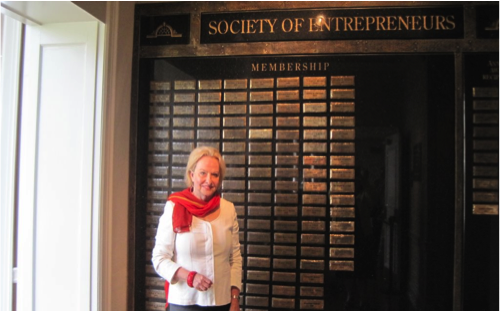 In conclusion –
In conclusion –
Ellen is a founding member and a past president of the Society of Entrepreneurs. She was inducted because of her life purpose.
“I was born at this time and place to create sustainable models that serve society.”
– Ellen Rolfes

